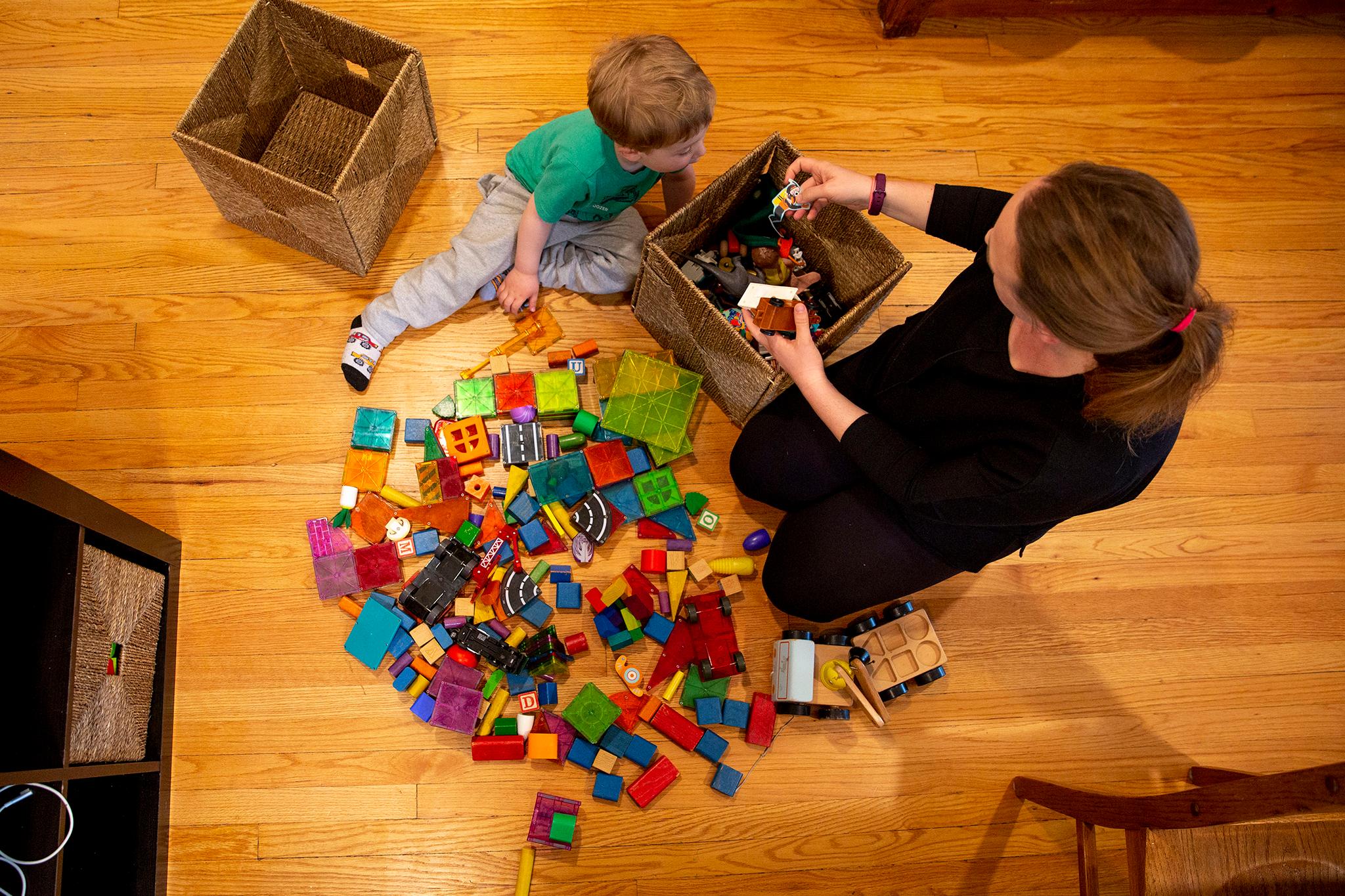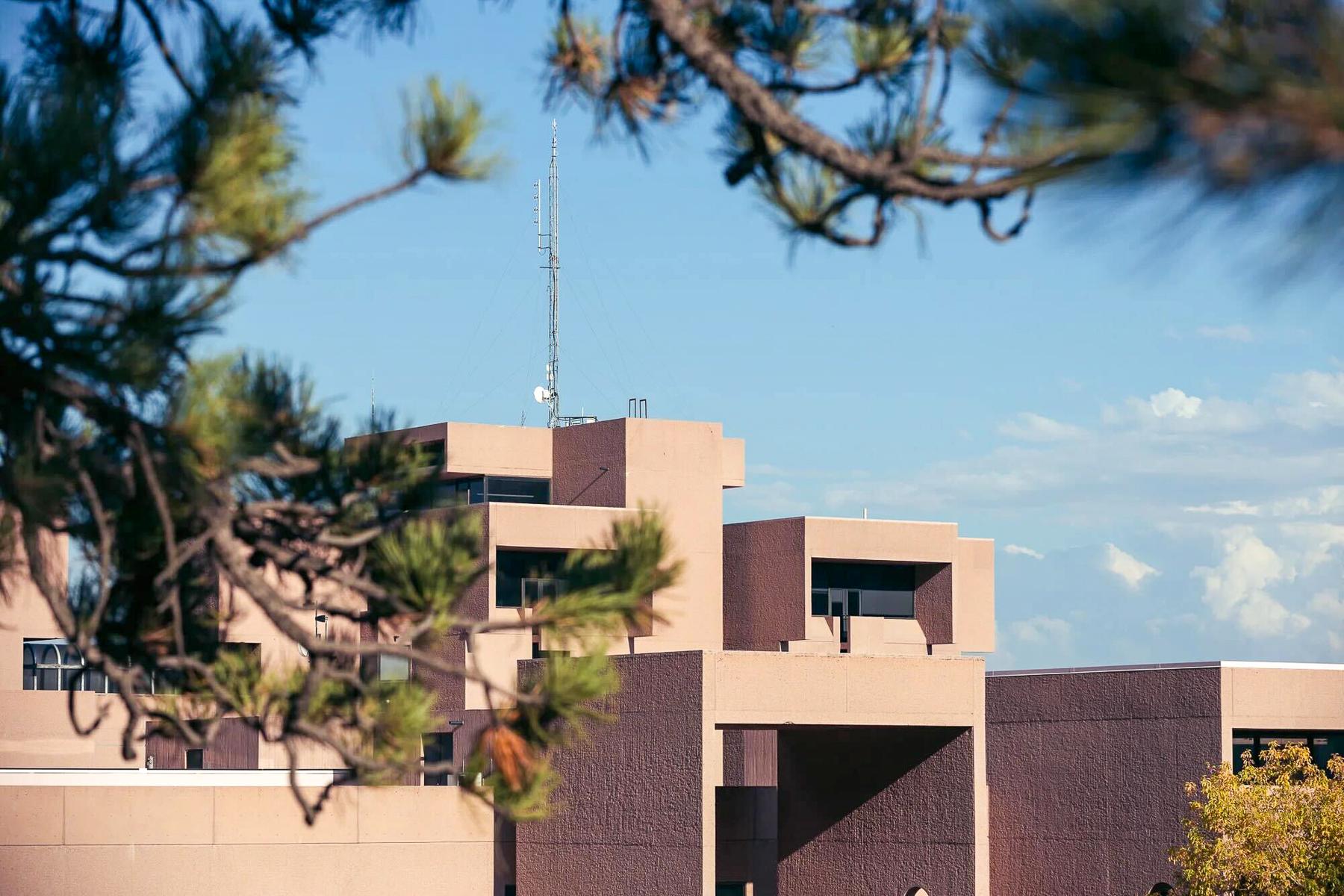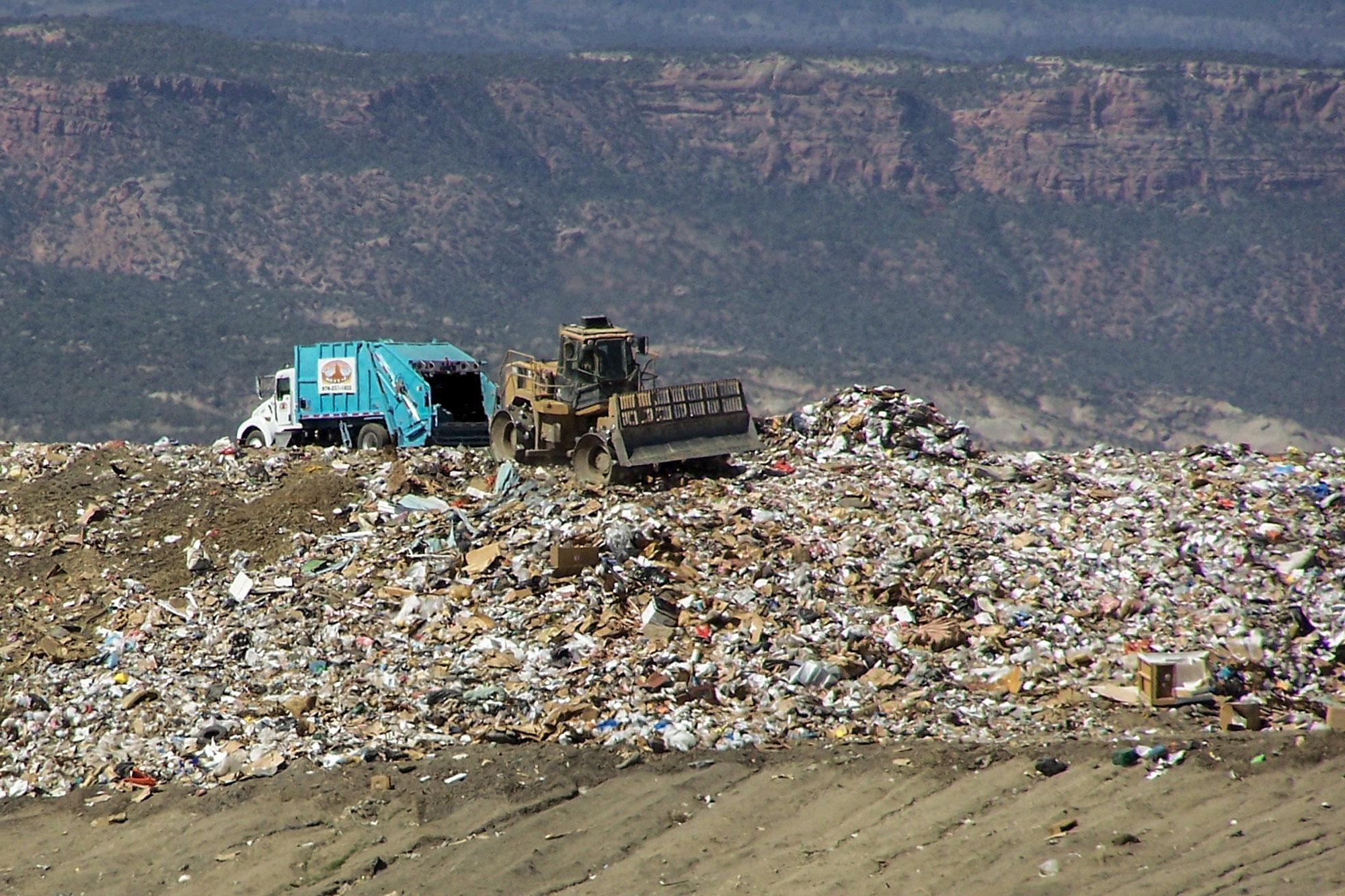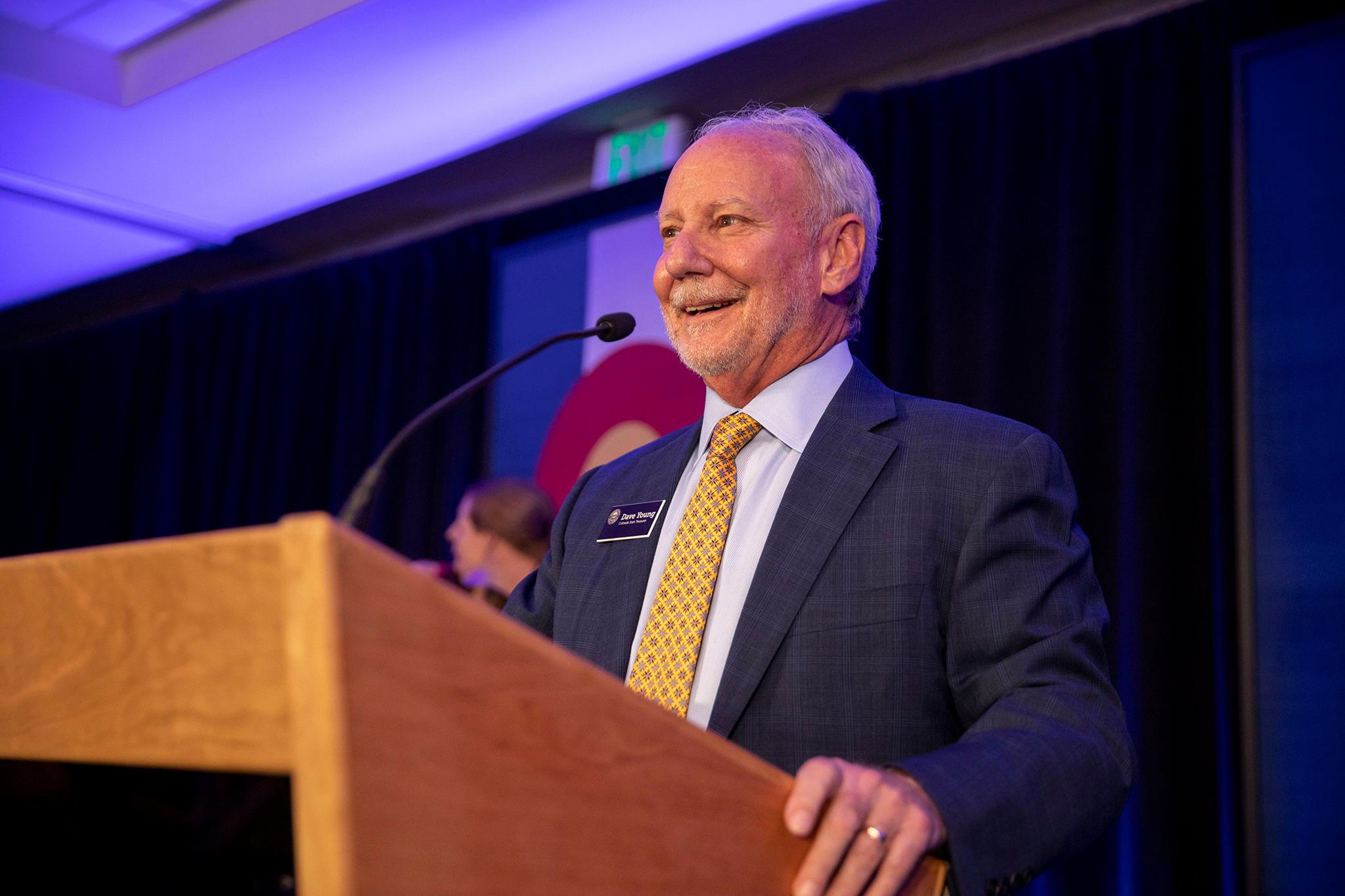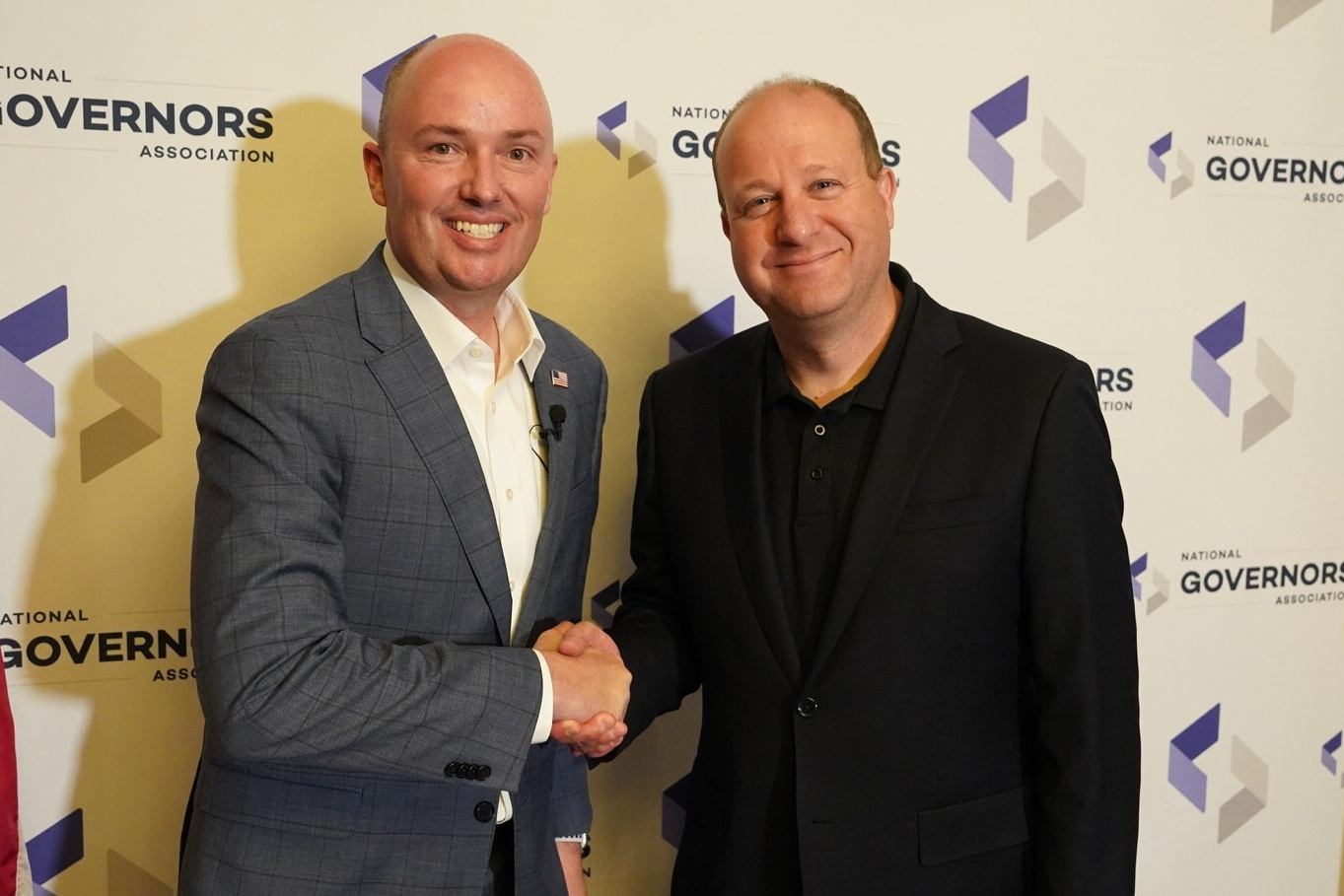
Is the country headed for civil war if its residents can’t find a way to resolve differences with respect?
Maybe, according to Utah Gov. Spencer Cox. Cox, a Republican, joined Colorado Gov. Jared Polis in Colorado this week as a part of a National Governors Association event on the Disagree Better initiative. That program, led by Polis and Cox, seeks to identify ways for politicians and residents alike to engage in politics without hatred.
Polis and Cox spoke with CPR’s public affairs editor Megan Verlee after an event at Colorado State University about the program, political discourse, and thorny state issues — including this month’s special session to address property taxes.
Read the interview
This interview has been edited for length and clarity.
Megan Verlee: Governor Polis, let's start with you. The Colorado legislature is beginning a special session on Friday to address property taxes, and this is coming after voters said, no — rather emphatically — to Proposition HH, which was put on the ballot by Democrats and backed by you in the spring as the answer to the rising property tax rates. So I'm wondering now that this is going through a legislative process, in hindsight, is that where these policies should have been all along?
Jared Polis: Well, I think that Democrats, Republicans, Coloradans agree that we need short-term relief. I also think that there's a Rubik's cube of a long-term problem there, and HH was a good-faith effort at solving that. The legislature, coming in next week, is not going to be able to solve the 10-year picture, the 20-year picture. What they are going to hopefully be able to do is provide immediate relief to homeowners across our state. And the reason that they had to come in early is that January is simply too late to do that.
The fundamental issue here is that Colorado's a great place to live, and as a result, home prices have gone up. The problem is that many people's incomes haven't gone up at the same rate as the value of their homes. Unless the legislature acts, and I'm confident they will, people could be facing 30, 40, 50 percent increases in their property taxes next year, and there's a chance to avoid that for a year and then work on what that long-term solution is, what kind of cap is needed. Prop HH had a cap, but maybe it's a different kind of cap, how we can prevent this from happening again in the future?
Well, given that voters have spoken on HH, do you think the legislature should avoid some of the mechanisms that it had, that voters have now rejected, like using TABOR refund money to backfill property tax cuts?
Polis: Well, everything was in HH — everything from making the senior homestead tax exemption portable to cutting property taxes. That's all the realm of solutions. It's the same things that are out there. There's TABOR surplus. Republicans have said, "Hey, can we use some of the reserve?" We said, "Yes, we're open to using 1 percent of the reserve."
It's really about figuring out how big the property tax relief is, and we certainly want the bigger the better. How much you then need to share with local government — and local government has done very well over this assessment period. Certainly, there's areas of our state where perhaps their increase in assessments has not kept up with inflation, where they only had 5 percent value in homes increase. I think everybody, the Republicans and Democrats feel that of course they should be backfilled, they should not be hurt by a reduction, but areas that had 40, 50 percent windfalls, the voters in those areas didn't necessarily get to vote on that either.
Many of these special districts, and this is why it's complicated, there's 4,000 special districts that are funded through property tax, everything from fire districts to library districts to you name it. So, again, I think in the short term, provide relief. I'm also hopeful that there'll be a blue ribbon, bipartisan panel that comes out of this legislature that really in the spirit of Disagree Better, can work through the very complicated trade-offs on this issue and come back with thoughtful recommendations around a long-term way to keep property taxes reasonable in our state.
Verlee: Well, to bring in the Disagree Better concept, I have to say that the reporters I work with who've been asking around about what might happen during the special session are frankly a little worried it could go off the rails. There are hard feelings around HH between Republicans and Democrats, even amongst the Democratic caucus. Are you worried that these disagreements might not be better, that this really could be a vitriolic session?
Polis: Look, elections come and go and people have their say, and then it's up to the people who serve to come together around solutions that help reduce the cost of living in Colorado. I think that's a basic value that Republicans and Democrats share. The cost of living has gone up in many cases, more than the rate of inflation. There's a broader conversation and our focus is on reducing the cost of housing, and that's a big value and goal of mine during my second term as governor, but property taxes are part of that equation because that increases the cost of living for people in our state. It doesn't solve the cost of living and housing affordability, but it certainly creates a bigger hole to dig out of on making living in Colorado more affordable if property taxes go up too much.
Verlee: I'd like to bring Governor Cox in here as we transition to the Disagree Better idea, but I'm going to do that by staying on housing for a moment. Governor, Utah has its own challenges with housing affordability and at a press conference in October, you said this about housing and the need for more to be done on the local level:
“There are some cities out there that think, oh yeah, everyone else we're unique, we're different. No, you're not unique and you're not different. You have to find more supply and you have to do it quicker.”
In the context of what it means to Disagree Better, how do you get leaders in your state to row in the same direction on something that is as personal and as high stakes to people as the character of the place they live?
Spencer Cox: That's the secret of governance, right? It's not just housing, although right now that's one of the biggest issues in both of our states. By the way, a better problem to have than people fleeing your state. We both live in states where people want to live, they want to raise their families, but we have to do more. We are working on a series of initiatives with our local cities and towns. Everybody wants the cost of living to come down. Everybody wants their kids and grandkids to be able to live here. A lot of people just don't want to see those houses from their front door, the kind of nimbyism that we're seeing.
And so we're going to have to change some of those incentives for sure. We're working very closely with our league of cities and towns. We are working closely with our developer community, working with the legislature, trying to figure out what are the incentives right now? Why are we not seeing these types of starter homes built?
I'm very focused on starter homes right now. Homeownership has been foundational to the success of our country. It's a way for people to start building that equity. It makes people feel rooted in their communities. They give back the social capital piece of this. We're losing an entire generation of homeowners that are forced to rent longer and rents are going up, and so we know we need more supply and we're going to work through this. We are. I've just had recent meetings with some of the leadership of our cities and towns. They heard that quote very loud and clear. It definitely got their attention and they're coming up with ideas. I don't want to penalize people. I want to inspire people. And we're starting to see more of that.
Gov. Polis, I'll ask you a similar question because obviously land use is a chief issue for you right now, and similarly in Colorado, it's been managed locally, but you've said it's time to take a statewide approach. When you are taking that approach, how do you genuinely ensure that local leaders who disagree about what you want to do feel like they're being heard, feel like they're part of the disagreement productively?
Polis: I started by having a number of town halls across the state. We had one here in Fort Collins, Pueblo, Grand Junction, Aurora. We invited local leaders and many others to really convene where we really talked — the future of housing was central in all of them. I mean, that wasn't seeded, but housing came up as the top topic. People talked about water, people talked about education.
But I mean, it's fair to say that we're being responsive here in trying to make living in Colorado more affordable because that’s also what local governments want and they understand that. Look, in many ways, it's the same problem Utah faces. The very kind of homes that are the most affordable to buy in the $200,000-$400,000 range, which tend to be smaller, maybe they're accessory dwelling units, these are exactly the kind of homes that have not been allowed to be built in close to sufficient numbers for decades.
This is not something that's recent. It's an accumulated deficit of the most affordable kinds of housing, which have actually been the hardest to get allowed to be built in our states. It's not rocket science. That's just why we are where we are. Something isn't working, so let's just have an authentic, thoughtful conversation about how we change that. So, if we fast forward five years, we don't have a greater deficit of units that are affordable and more expensive units that are further from job centers and towns, but we can make a course correction here and figure out a way where we can have more homes that people can afford to buy, including multifamily, closer to job centers, to make life more convenient and lower cost for Coloradans.
Gov. Cox, you've mentioned that the Disagree Better initiative is not about getting everyone to agree — it probably would have a different name if it was — but about getting them to a place where they don't hate each other. I'm curious if there's a policy area that you have worked on as governor that you can talk about where you feel like that approach succeeded and what the impact was or one where you tried it and it did not work out.
Cox: We just saw this past legislative session. Obviously, the culture wars are raging across the country. I lament that I think there's a better way to do things. We worked really hard to try to bridge some of those gaps in a very Republican state, very conservative state. We knew there were going to be a couple issues coming up in our legislative session that were very divisive.
One of them was on healthcare for minors. In an effort to try to Disagree Better, I invited the trans youth and their parents and leaders in that movement to the governor's mansion together with legislative leadership and the bill sponsors who would be running those bills in an effort to bring them in to see each other's humanity. There was no agenda: We had some food, we got to know each other. And I do think it helped during the discussion.
The debate in Utah, I think, was much better than the debate in some other states. There were some changes made to the bill based on that, but at the end of the day, they were very disappointed that the bill passed, and they were very angry that the bill passed and that I signed it into law.
At the same time, I have to give credit to the leaders of the LGBTQ community, Equality Utah, and others who didn't take the opportunity to just burn it all down and fundraise off of it and call people terrible names. They stayed engaged. So, when a second issue came up around conversion therapy, there was an effort to reinstate conversion therapy — a terrible practice that has been very damaging to our LGBTQ community.
There were two very conservative legislators who were trying to bring that back. They met together for weeks on end. They locked themselves in a room, tried to figure this out, and they came out with a solution that actually banned conversion therapy permanently in the state of Utah. And it was voted on unanimously, again by a very conservative legislature. I think it's just a great example of the way in the most controversial issues, if we're willing to sit down and have the hard conversations and try to find some sort of common ground, we can often come up with solutions. Not always, but sometimes it works that way.
Well, I think that gets to a big question I have about this effort, which is when you talk about disagreeing better, is it alighting the fact that, for many people, the political disagreements in the society over LGBTQ rights, over racial equity, over the climate are literal matters of life and death and may not be a place where a polite disagreement feels possible?
Cox: We're not just talking about a polite disagreement, right? We're talking about profound disagreement. We're talking about staying true to the things that you believe in. But, I get that question all of the time, and I love to push back on it because I always say, “How's your way working? Have you ever changed anybody's mind by attacking them, telling them they're racist or homophobic or whatever?”
It doesn't, it doesn't change anybody's hearts and minds. And again, on this very issue, I give credit to Troy Williams who's the leader of Equality Utah. We disagree on lots of things, but this guy actually bought a booth at the Republican State Convention. He showed up in a place where he was not expected to show up. He was told he should not do that. He was told that by Republicans and by Democrats. He was told by his own allies that this was the worst thing possible. And he showed up and he engaged with people and it was transformational. It was incredible to watch people who screamed at him, hated him, who gave him a hug, and apologized when they were done discussing. Whenever I hear this, I say, “Yeah, keep doing it your way and you will get absolutely nowhere. But if you want to get somewhere, you have to be willing to engage on these topics.”
Gov. Pollis, what are your thoughts on that topic?
Polis: No, look, I absolutely agree. I mean, yelling at one another doesn't work. Disengaging from the process doesn't work. What it takes is doubling down on the commitment to have the thoughtful discussions and ask questions. Maybe there's room that you can find that didn't exist before. I understand, of course, that many people fear what the other side is trying to do to them. Start with asking the questions: “Are you actually trying to do this to me? Is that what I'm hearing in my own echo chamber? Is that what you're trying to do?”
If so, “Is it all of you? Is it some of you? Why are you trying to do this?” I mean, ask these questions and have those discussions because the alternative is scary for the destruction of civil society and the cohesion of our country.
Verlee: I find this a very interesting week to be talking to two elected officials about disagreeing better. If you've been watching what is going on in Washington where things have gotten almost physical among people who disagree with each other or actually have crossed the line into physical conflict, what do you say to people listening to this who say, “Why are politicians telling me how to disagree better when that is not what we are seeing in our politics?”
Cox: Well, I think you need some politicians to be talking about this. And I can't thank Governor Jared Polis enough for his willingness to go on this journey and to have these conversations. We don't represent every politician in the country, and it's precisely because of those things that are happening this week that we need people. We've been told that governors are the last adults in the room when it comes to politics. Obviously, not all of us, but I think most of us are trying to do it the right way and people are tired of it.
And the numbers show that we have an exhausted majority in this country. They hate where our politics is right now. They're looking for any sign of something different, any sign of life, and we're trying to offer that. That being said, I'm going to screw up a lot. I mean, it's really hard to try to be the face of this. When I'm running for re-election next year, my first instinct is to fight. It's human nature to do that. But these virtues that we've held as Americans and as civil leaders for so long are more important today more than ever before. And so I think that most people are just grateful that anybody's willing to have this conversation.
Polis: Of course, I don't think Governor Cox and I are under the delusion that somehow governors can deus ex machina, solve everything, but we can help play a convening role through the institution of the National Governors Association. Through Governor Cox's work as chair, we're having regional convenings. We're lifting up the work of those who've been toiling in the fields of this issue for years — organizations that I've learned about in the last few days and weeks, like Braver Angels and others that are finding that room for civil dialogue, whether it's on our university campuses, whether it's in the broader community, along with making sure that we can break through on the cultural side to people.
I think there's a great hunger among the American people for this message. Governors can add the gravitas and the heft behind this message, but it's also one that really ultimately comes down to each and every one of us in the choices we make and the media we consume. How we live our lives in civil society and how we disagree.
So I'm going to undercut the cynicism of my last question a bit by saying, as somebody who covered our state legislature for a long time and now watches our congressional delegation closely, I'm also very aware that in legislative bodies and in governance, there are a lot of bipartisan friendships that go beneath the radar. Maybe they're kind of quiet, but I've seen people with very deep ideological disagreements be very good friends in these settings. And it makes me wonder, are there things that politicians, some politicians, not all of them, actually know about being friends with people and being civil and thoughtful with people you disagree with, that you actually wish the general public could learn or experience?
Cox: Too often the media focuses on those divides and the incentives are kind of messed up in our country right now. There are a lot of those friendships, not nearly as many in Congress as there used to be, and I think that's a problem. I've talked to members of Congress who served before, of course, Governor Polis served before, they used to have more of those friendships.
They exist. We don't hear about them very often because again, the incentives are all messed up. That doesn't get eyeballs. A nice story about two politicians who had dinner together doesn't get as much story as the guy who wants to fight the other politician, right? That's going to go viral. But we do need to remind people that this isn't normal in our politics, that this is an aberration. Over the past 10 years, something has changed, something is broken, and the people are all responsible for trying to bring that back. We all have a role to play. Let's stop amplifying those negative voices. Let's stop tweeting and sharing and watching cable news. All of those things that are designed for contempt, designed to make us hate our fellow Americans.
Polis: Like any representative body, there's every kind of politician under the sun. I think what maybe people don't always recognize, the vast majority of public servants, in my opinion, that I've encountered are dedicated to making their state and the world a better place. They’re willing to listen, which is a two-way street. Their willingness to listen is only as good as your willingness to share your ideas with them as their constituents. Breaking down those barriers between elected officials and the vast majority of people who want to see a better way to disagree is going to be absolutely critical because ultimately, if the elected officials are only hearing from those in the silos or those who have the goal of further dividing our country, they'll react accordingly.
I think it's important for all of us to make sure that we lead the way by example with regard to Disagree Better, but also make sure we bring politicians along with us. Some politicians will lead and some will lag, and that's the way it is on any issue. But it's very important that we bring the whole body politic along on this important discussion of how we can disagree better.
So we've been talking big picture and a bit abstractly. I want to make it personal for you guys now because of course, neighboring states often have disagreements. The one that I would like you two to talk to each other about right now is the issue of whether more trains carrying oil from the Uinta basin in Utah should be allowed to travel through Colorado. That's a hot issue in the state. A lot of concern for local leaders in Colorado. I understand (Governor Cox) you’re in favor of the new rail traffic. How do you disagree better about an issue like this?
Polis: Let me start with an even harder one. Which state has better skiing? I don't think I'm ever going to be able to convince Governor Cox that Colorado has the best skiing in the country, and I don't think he's going to be able to convince me of anything different.
Cox: I think those are fighting words, but we can start from an area of, skiing is important to our economies.
Polis: Exactly. It’s a great hobby and great way to be involved. We support the global tourism and United States tourism around skiing because the bigger that pot is, the more people are coming to Utah and Colorado to ski.
Verlee: Governors. Oil trains. We are in public radio land, and our listeners would love to hear you talk about oil trains.
Cox: Sure. So look in this conversation, and we haven't had this conversation directly before, so this is I think, an important first step. I think we can start by talking about energy prices and what's happening in energy right now. Can we get some agreement on that? I think we both believe in the importance of cleaning up our air, the importance of climate change, and decarbonization at the same time, just like property taxes in Colorado and home prices in both of our states, energy prices are really hurting our citizens right now. We're hearing that over and over again.
We know we're not at a place where we're ready to transition completely, yet oil and gas will continue to play an important role in what we're doing. And can we do that safely? Can we continue to export this form of energy in a safe way that protects Coloradans and Utahans? And that's kind of where I would start the conversation.
Polis: Both Colorado and Utah are important energy-producing states. In fact, as part of my chair's initiative at the Western Governors Association, I joined Governor Cox in Beaver County, Utah to visit a geothermal energy facility there. My focus is heat beneath our feet, geothermal energy, I’m very excited about opportunities for geothermal energy across the West. We have absolutely passed along concerns from local governments, mostly centered around the risk of derailments of toxic fuels and local impact. Because yeah, this is something that affects Coloradans. I'm sure that, again, it can be viewed through the lens of energy future, but there's a lot of fear and worry on the ground and the areas impacted that derailments and contamination could hurt the quality of life in areas that are directly impacted.
Cox: And I think, again, that's where we start being curious. So what is it that you're concerned about? Are the fears derailment and the potential for toxins to be released? Let's start there. Let's talk about how we can then figure out how to make it safe for those trains, if that's ever approved, to come through those communities without adding to their fear of something terrible happening.
Polis: And I would just add, it's not so much something to be, in this case, to be worked out between governors. It's at the federal level for decision-making. So I mean, I'm sure that (Governor Cox) provided input. We've provided input, and I'm comfortable with the process. Senator (Michael) Bennet, Senator (John) Hickenlooper, Congressman (Joe) Neguse, Representative (Lauren) Boebert, they've all let their concerns be known and provided that appropriate input. We've also passed along input to decision-makers.
Cox: And I think here's a great example. Again, there is a process in place. It doesn't mean this may be a zero-sum: One of us gets our way and the other one doesn't. We'll go through that process and we'll see what happens, and then we'll challenge that process and accept that process. But what you don't hear is us demonizing each other like “those evil Utahans who are trying to bring their terrible oil into our state.” That's not the conversation we're having.
So, to wrap up on that note, Governor Cox, you mentioned on your wife Abby's podcast that you worry that not learning how to disagree better could lead to civil war in this country. And I wonder why you put the stakes that high.
Cox: Well, look, I'm not a politician who's prone to hyperbole. I'm a generally very optimistic person. I'm a happy warrior, much like Governor Polis, but these aren't my words. These are the words of experts who study this over and over again. People like Rachel Kleinfeld, Jonathan Haidt, who have all said that we are facing over the next couple decades, the potential for catastrophic failure of our democratic institutions. And I often ask people, “How does this end? Where does this end, this train that we're on right now?” And it either ends with us figuring it out and changing, and I'm hopeful we can do that again.
The numbers show that a majority of Americans want to change that pendulum swing and we’ll start to swing back the other way. But another way that this ends is with people shooting each other. And we've seen that before in our country.
We heard experts just yesterday from Harvard, from others, from the Constitutional Center, tell us that what we are seeing here are the worst fears of our founders, that what we are seeing here, it's the 1850s and we cannot sustain this. However bad, you think it is, it's probably worse right now as we're crossing all of these checkpoints. There are a lot of people out there using fear to divide us. I say this again, they say this because it's real. And I'm hoping it will wake us up in a way and help us understand that we just have to stop hating our fellow Americans and try to find real solutions to our problems.
Governors, we're obviously having this conversation right before Thanksgiving, so I wonder if there's one thing from what you've been advocating that you hope somebody listening to this takes to their Thanksgiving dinner table with their relative that they normally can't even talk to?
Polis: Look, many families have different ideas in their family, and there might be somebody trying to explain non-binary to a great aunt. Just show that intellectual curiosity. Don’t be afraid to say “Okay, this is how I consider myself. How do you consider gender? Okay, you say it's male/female, tell me why. What if the person doesn't feel comfortable either?”
I mean, these are topics that too often are taboo. That only reinforces people in their cultural warrior silos when they think that there's no hope of the other side ever understanding and there's only a culture of fear and derision with regard to the other side. So it starts with families, it starts with having these conversations. They're not easy, but there's constructive ways to have them. And there are truly ways to disagree better.
Cox: Governor Polis hit it. We tell people all the time to be curious. Ask that magic question. Tell me more about why you feel that way. And then be humble, be open, be kind. One of the best things about what we've been working on, this Disagree Better initiative. I get messages all the time from people who have said, “I haven't talked to my dad about politics in years. I have a brother or sister, we never talk about this. Or we don't even talk. We've stopped talking years ago.”
And they said, “We've taken these practical tools, it's important to me. And we're re-engaging. we're having these conversations again.” That's the most gratifying piece. I don't pretend that we're —a couple of governors — going to change the country overnight. But, if we can change some individual families and help them have those conversations, then what we're doing is worth it.
Polis: And at the end of the day, our elected officials really echo and represent the same way that civil society and people in general talk about these issues. And if it breaks down at the family level, how in the world do we expect our elected officials to be able to repair it? So this kind of Disagree Better concept needs to occur at all levels of civil society. And of course, that means in our families, our friend networks, all the way up through all the politicians across the land.

